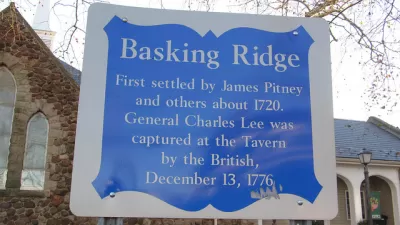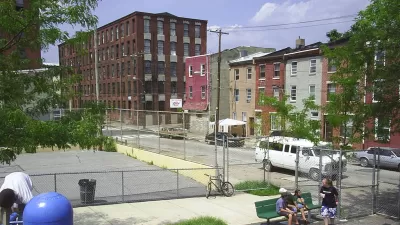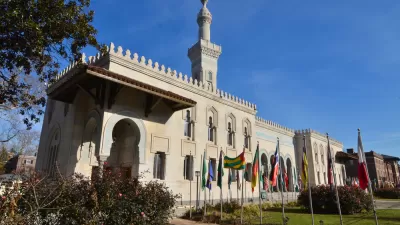As the U.S. Department of Justice takes action to protect the religious freedoms of Muslims in the United States, zoning decisions have proven a particularly common source of anxiety among Muslim communities.

Katie Shepherd reports on the controversy over a proposed mosque project in Bensalem, Pennsylvania. According to Shepherd, a Muslim congregation in the Philadelphia suburb spent ten months "[pleading] with township officials to allow the construction of a mosque, paying for expensive traffic studies, repeatedly explaining Islamic practices, revising and re-revising design plans, and then receiving the final word: No."
The U.S. Department of Justice, however, has charged "that the Bensalem Township zoning hearing board had violated federal religious land-use laws by denying the congregation’s application after it had granted zoning exemptions for other religious construction projects."
More specifically, the township's zoning board had previously granted variances to an Indian Orthodox church, two Hindu temples, and several faith-based private schools, among other religious institutions, according to Shepherd.
The Bensalem case is just one example of a concerted effort by the Department of Justice to protect the rights of Muslims in the United States at a time of heated political rhetoric and global conflict. "The Justice Department has taken up land-use cases like the one in Bensalem, religious discrimination in the workplace and at school, and hate-crime cases, and it has deployed community leaders to educate people on Islam," reports Shepherd.
Accusations of religious discrimination, like the example from Bensalem, are increasing, according to Shepherd. And in some cases, other churches have stood in solidarity with Muslim mosques, recognizing the possibility for one variety of religious discrimination to lead to another.
FULL STORY: Township Saw a Zoning Issue. The Justice Dept. Saw Religious Discrimination.

Pennsylvania Mall Conversion Bill Passes House
If passed, the bill would promote the adaptive reuse of defunct commercial buildings.
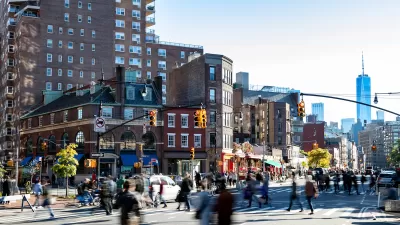
Planning for Accessibility: Proximity is More Important than Mobility
Accessibility-based planning minimizes the distance that people must travel to reach desired services and activities. Measured this way, increased density can provide more total benefits than increased speeds.
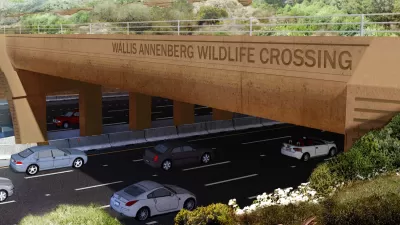
World's Largest Wildlife Overpass In the Works in Los Angeles County
Caltrans will soon close half of the 101 Freeway in order to continue construction of the Wallis Annenberg Wildlife Crossing near Agoura Hills in Los Angeles County.

Eviction Looms for Low-Income Tenants as Rent Debt Rises
Nonprofit housing operators across the country face almost $10 billion in rent debt.

Brightline West Breaks Ground
The high-speed rail line will link Las Vegas and the Los Angeles area.

Colorado Bans No-Fault Evictions
In most cases, landlords must provide a just cause for evicting tenants.
City of Costa Mesa
Licking County
Barrett Planning Group LLC
HUD's Office of Policy Development and Research
Mpact Transit + Community
HUD's Office of Policy Development and Research
Tufts University, Department of Urban and Environmental Policy & Planning
City of Universal City TX
ULI Northwest Arkansas
Urban Design for Planners 1: Software Tools
This six-course series explores essential urban design concepts using open source software and equips planners with the tools they need to participate fully in the urban design process.
Planning for Universal Design
Learn the tools for implementing Universal Design in planning regulations.























